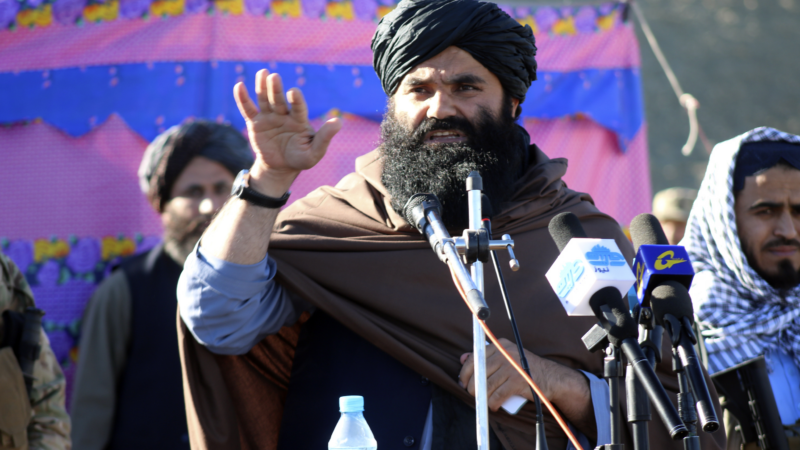The U.S. lifts bounties on senior Taliban officials, says Kabul
The U.S. has lifted bounties on three senior Taliban figures, including the interior minister who also heads a powerful network blamed for bloody attacks against Afghanistan’s former Western-backed government, officials in Kabul said Sunday.
Sirajuddin Haqqani, who acknowledged planning a January 2008 attack on the Serena Hotel in Kabul, which killed six people, including U.S. citizen Thor David Hesla, no longer appears on the State Department’s Rewards for Justice website. The FBI website on Sunday still featured a wanted poster for him.
Interior Ministry spokesman Abdul Mateen Qani said the U.S. government had revoked the bounties placed on Haqqani, Abdul Aziz Haqqani, and Yahya Haqqani.
“These three individuals are two brothers and one paternal cousin,” Qani told the Associated Press.
The Haqqani network grew into one of the deadliest arms of the Taliban after the U.S.-led 2001 invasion of Afghanistan.
The group employed roadside bombs, suicide bombings and other attacks, including on the Indian and U.S. embassies, the Afghan presidency, and other major targets. They also have been linked to extortion, kidnapping and other criminal activity.
A Foreign Ministry official, Zakir Jalaly, said the Taliban’s release of U.S. prisoner George Glezmann on Friday and the removal of bounties showed both sides were “moving beyond the effects of the wartime phase and taking constructive steps to pave the way for progress” in bilateral relations.
“The recent developments in Afghanistan-U.S. relations are a good example of the pragmatic and realistic engagement between the two governments,” said Jalaly.
Another official, Shafi Azam, hailed the development as the beginning of normalization in 2025, citing the Taliban’s announcement it was in control of Afghanistan’s embassy in Norway.
Since the Taliban takeover of Afghanistan in August 2021, China has been the most prominent country to accept one of their diplomats. Other countries have accepted de facto Taliban representatives, like Qatar, which has been a key mediator between the U.S. and the Taliban. U.S. envoys have also met the Taliban.
The Taliban’s rule, especially bans affecting women and girls, has triggered widespread condemnation and deepened their international isolation.
Haqqani has previously spoken out against the Taliban’s decision-making process, authoritarianism, and alienation of the Afghan population.
His rehabilitation on the international stage is in contrast to the status of the reclusive Taliban leader Hibatullah Akhundzada, who could face arrest by the International Criminal Court for his persecution of women.
Rideshare union rights, social media limits and other state laws taking effect Jan. 1
Every new year, public media reporters across the country bring us some of the new state laws taking effect where they are. Here are six in 2026.
Guides to help you tackle your New Year’s resolutions
From building your strength to tackling credit card debt, NPR's Life Kit has a newsletter journey to help you tackle your New Year's resolution.
Guides to help you tackle your New Year’s resolutions
From building your strength to tackling credit card debt, NPR's Life Kit has a newsletter journey to help you tackle your New Year's resolution.
Dozens presumed dead in fire at Swiss Alps bar during New Year’s celebration
Dozens of people are presumed dead and about 100 injured, most of them seriously, following a fire at a Swiss Alps bar during a New Year's celebration, police said Thursday.
Warren Buffett officially retires as Berkshire Hathway’s CEO
The legendary 95-year-old investor spent decades building his company into one of the world's largest and most powerful. Now Greg Abel is taking it over.
Crypto soared in 2025 — and then crashed. Now what?
For most of 2025, cryptocurrencies such as bitcoin surged as President Trump vowed to make the U.S. a crypto leader. But now, a severe sell-off has shaken the sector.






